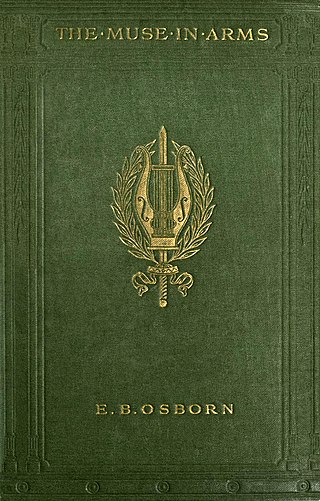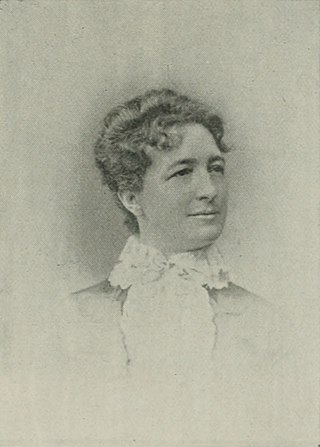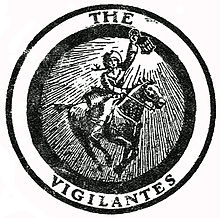
Edward Estlin Cummings, who was also known as E. E. Cummings, e. e. Cummings, and e e Cummings, was an American poet, painter, essayist, author, and playwright. He wrote approximately 2,900 poems, two autobiographical novels, four plays, and several essays. He is often regarded as one of the most important American poets of the 20th century. Cummings is associated with modernist free-form poetry. Much of his work has idiosyncratic syntax and uses lower-case spellings for poetic expression.
Latin literature includes the essays, histories, poems, plays, and other writings written in the Latin language. The beginning of formal Latin literature dates to 240 BC, when the first stage play in Latin was performed in Rome. Latin literature would flourish for the next six centuries. The classical era of Latin literature can be roughly divided into the following periods: Early Latin literature, The Golden Age, The Imperial Period and Late Antiquity.

Siegfried Loraine Sassoon was an English war poet, writer, and soldier. Decorated for bravery on the Western Front, he became one of the leading poets of the First World War. His poetry both described the horrors of the trenches and satirized the patriotic pretensions of those who, in Sassoon's view, were responsible for a jingoism-fuelled war. Sassoon became a focal point for dissent within the armed forces when he made a lone protest against the continuation of the war with his "Soldier's Declaration" of July 1917, which resulted in his being sent to the Craiglockhart War Hospital. During this period he met and formed a friendship with Wilfred Owen, who was greatly influenced by him. Sassoon later won acclaim for his prose work, notably his three-volume, fictionalised autobiography, collectively known as the Sherston trilogy.

Philip Edward Thomas was a British writer of poetry and prose. He is sometimes considered a war poet, although few of his poems deal directly with his war experiences. He only started writing poetry at the age of 36, but by that time he had already been a prolific critic, biographer, nature writer and travel writer for two decades. In 1915, he enlisted in the British Army to fight in the First World War and was killed in action during the Battle of Arras in 1917, soon after he arrived in France.

This article focuses on poetry from the United Kingdom written in the English language. The article does not cover poetry from other countries where the English language is spoken, including Republican Ireland after December 1922.

Conrad Potter Aiken was an American writer and poet, honored with a Pulitzer Prize and a National Book Award, and was United States Poet Laureate from 1950 to 1952. His published works include poetry, short stories, novels, literary criticism, a play, and an autobiography.
Canadian poetry is poetry of or typical of Canada. The term encompasses poetry written in Canada or by Canadian people in the official languages of English and French, and an increasingly prominent body of work in both other European and Indigenous languages.

Literature about World War I is generally thought to include poems, novels and drama; diaries, letters, and memoirs are often included in this category as well. Although the canon continues to be challenged, the texts most frequently taught in schools and universities are lyrics by Siegfried Sassoon and Wilfred Owen; poems by Ivor Gurney, Edward Thomas, Charles Sorley, David Jones and Isaac Rosenberg are also widely anthologized. Many of the works during and about the war were written by men because of the war's intense demand on the young men of that generation; however, a number of women created literature about the war, often observing the effects of the war on soldiers, domestic spaces, and the home front more generally.

Robert Elwood Bly was an American poet, essayist, activist and leader of the mythopoetic men's movement. His best-known prose book is Iron John: A Book About Men (1990), which spent 62 weeks on The New York Times Best Seller list, and is a key text of the mythopoetic men's movement. He won the 1968 National Book Award for Poetry for his book The Light Around the Body.

American poetry refers to the poetry of the United States. It arose first as efforts by American colonists to add their voices to English poetry in the 17th century, well before the constitutional unification of the Thirteen Colonies. Most of the early colonists' work was similar to contemporary English models of poetic form, diction, and theme. However, in the 19th century, an American idiom began to emerge. By the later part of that century, poets like Walt Whitman were winning an enthusiastic audience abroad and had joined the English-language avant-garde.

Qu Yuan was a Chinese poet and aristocrat in the State of Chu during the Warring States period. He is known for his patriotism and contributions to classical poetry and verses, especially through the poems of the Chu Ci anthology : a volume of poems attributed to or considered to be inspired by his verse writing. Together with the Shi Jing, the Chu Ci is one of the two greatest collections of ancient Chinese verse. He is also remembered in connection to the supposed origin of the Dragon Boat Festival.

War poetry is poetry on the topic of war. While the term is applied especially to works of the First World War, the term can be applied to poetry about any war, including Homer's Iliad, from around the 8th century BC as well as poetry of the American Civil War, the Spanish Civil War, the Crimean War and other wars. War poets may be combatants or noncombatants.

Sir William Watson was an English poet, popular in his time for the celebratory content, and famous for the controversial political content, of his verse. Initially popularly recognised, he was then neglected because of changing tastes.

William Stanley Beaumont Braithwaite was an African-American writer, poet, literary critic, anthologist, and publisher in the United States. His work as a critic and anthologist was widely praised and important in the development of East Coast poetry styles in the early 20th century. He was awarded the Spingarn Medal in 1918.
English literature is literature written in the English language from the English-speaking world. The English language has developed over the course of more than 1,400 years. The earliest forms of English, a set of Anglo-Frisian dialects brought to Great Britain by Anglo-Saxon invaders in the fifth century, are called Old English. Beowulf is the most famous work in Old English, and has achieved national epic status in England, despite being set in Scandinavia. However, following the Norman conquest of England in 1066, the written form of the Anglo-Saxon language became less common. Under the influence of the new aristocracy, French became the standard language of courts, parliament, and polite society. The English spoken after the Normans came is known as Middle English. This form of English lasted until the 1470s, when the Chancery Standard, a London-based form of English, became widespread. Geoffrey Chaucer (1343–1400), author of The Canterbury Tales, was a significant figure in the development of the legitimacy of vernacular Middle English at a time when the dominant literary languages in England were still French and Latin. The invention of the printing press by Johannes Gutenberg in 1439 also helped to standardise the language, as did the King James Bible (1611), and the Great Vowel Shift.

The Muse in Arms is an anthology of British war poetry published in November 1917 during World War I. It consists of 131 poems by 52 contributors, with the poems divided into fourteen thematic sections. The poets were from all three branches of the armed services, land, sea and air, from a range of ranks and from many parts of the UK. Twenty of the poets who contributed to this volume died during the war. The editor was the journalist and author Edward Bolland Osborn (1867–1938), and the book was printed in London by the publishers John Murray. This anthology was one of several collections of war poetry published in the UK during the war. It "achieved large sales", and was reprinted in February 1918. It has been referenced in several analyses of First World War poetry and has been described as "the most celebrated collection of the war years".

Poetry of Scotland includes all forms of verse written in Brythonic, Latin, Scottish Gaelic, Scots, French, English and Esperanto and any language in which poetry has been written within the boundaries of modern Scotland, or by Scottish people.
Anne Penny was a British poet and translator, born in Wales to a vicar and his wife. She married a privateer who owned an estate in Oxford, but was left widowed at the age of 22 with a son, Hugh Cloberry Christian. She then started writing poetry. She married a French customs officer, again with a maritime history, and the couple moved to London. There she published a number of works, including her most significant poem An Invocation to the Genius of Britain, a patriotic piece written at the start of the Anglo-French War. She also published a number of translations of Welsh poems.

Kate Brownlee Sherwood was an American poet, journalist, translator and story writer of the long nineteenth century, as well as a philanthropist, and patron of the arts and literature. Sherwood was also the founder of the Woman's Relief Corps and served as its second president.

Virginia Frazer Boyle was an American author of prose and poetry. Interested in the Confederacy, she wrote several novels and more than 100 poems that took up various aspects and presented inspirational and patriotic points of view. She served as the poet laureate of the United Confederate Veterans and the Confederate Southern Memorial Association. She had innumerable stories and poems published in magazines. Boyle did extraordinary war work for the U.S. during World War I, receiving citations and medals for her service for Italy, and was made life member of two of the French Academies.
















